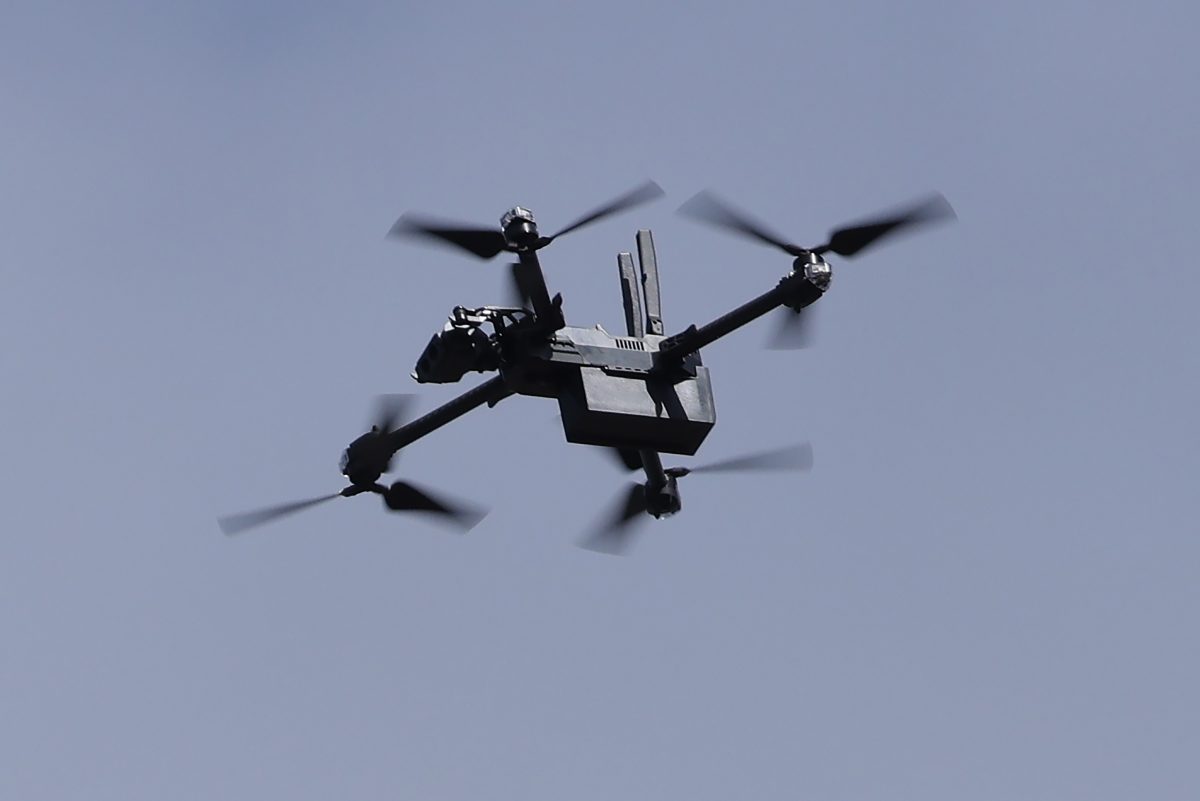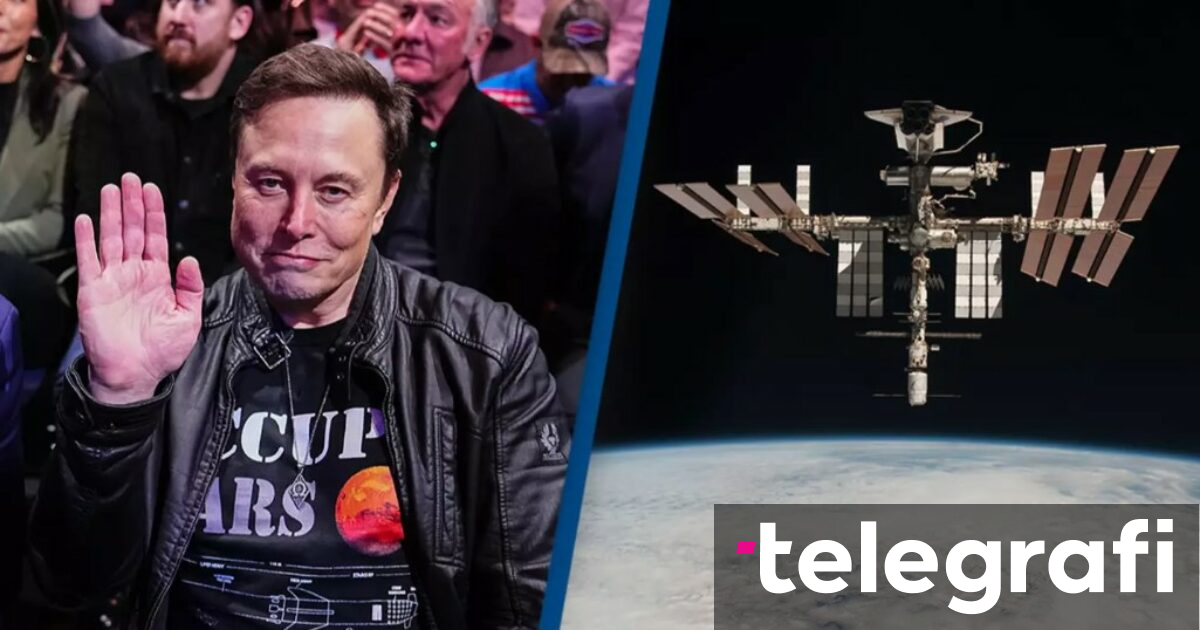- TECHSWU
- Posts
- TECHSWU
TECHSWU

In a timely reminder of the importance of defense spending, James Price argues that new technologies are poised to help the West rebuild its military industrial base amid increasing global threats. The article emphasizes that European nations are falling short of their NATO commitments, even as conflicts in Ukraine and the Middle East highlight the urgency for a robust military.
The U.S.
and its allies face formidable adversaries, including Russia and China, underscoring the need for innovation in defense technology. Companies like Anduril Industries are developing advanced weaponry, such as strike drones and cruise missiles, to support this effort.
Price advocates for a strategic governmental approach to defense spending, encouraging investments that bolster national safety and aim to re-establish the West as the "arsenal of democracy." As tensions rise, he insists that prioritizing military readiness is crucial for safeguarding civilization.


In an exciting development, Apple is set to invest a whopping $1 billion to establish a manufacturing plant in Indonesia, focusing on smartphone components. This move comes after the Indonesian government rejected a mere $100 million proposal from Apple, deeming it insufficient to lift the ban on iPhone 16 sales due to regulations insisting on 40% local content.
Investment Minister Rosan Roeslani confirmed that discussions are underway, and a formal announcement is expected soon. Despite lacking manufacturing facilities in the country, Apple has been active since 2018 with application developer academies, showcasing its commitment to local engagement.

Exciting news! Girls from across the UK have emerged victorious in the 2024/2025 CyberFirst Girls Competition, a thrilling contest designed to spark interest in cyber security. Over 14,500 participants registered, representing a record-breaking 4,159 teams from more than 800 schools.
With a focus on girls aged 12-13, this competition, organized by the National Cyber Security Centre (NCSC), aims to inspire future generations to consider careers in tech. The triumphant teams hailed from diverse regions, including Colchester County High School for Girls and Cardiff High School, among others.
Chris Ensor from NCSC celebrated their impressive skills and teamwork, emphasizing the importance of increasing female representation in the cyber field. The winners will be honored at a grand dinner on International Women’s Day, marking not just their achievements but a pivotal step toward breaking barriers in the tech industry.

In a groundbreaking move, Elon Musk's SpaceX has clinched an impressive $843 million contract to decommission the International Space Station (ISS), setting the stage for a dramatic end to the iconic orbiting laboratory. Built in 1998 through international collaboration, the ISS has been a hub for scientific discovery, allowing unique experiments in microgravity.
However, with its operational lifespan nearing its end, NASA plans to safely guide the ISS back to Earth post-2030. SpaceX will utilize a modified Dragon spacecraft, boasting four times the power of its predecessor, to assist in this historic task.
A Falcon Heavy rocket is slated for launch from Kennedy Space Center on July 25, 2028, ushering in the next chapter for space exploration as the ISS gracefully meets its retirement.
In the thought-provoking article by Dr. José Albornoz, the debate intensifies: Should artificial intelligence (AI) mimic human qualities or focus on enhancing our lives without pretense? While some argue for emotionally intuitive AI that feels more like a companion, others caution against the ethical pitfalls this could bring—like emotional manipulation and identity confusion.
As AI evolves, the risk of making humans appear more like tools for AI becomes a worrying prospect. Innovations like Emotion AI strive to foster connection but must tread carefully.
Advocates for human-centric AI suggest a balanced approach, where technology enhances human capabilities without masquerading as human. With AI’s rapid growth and increasing integration into everyday life, finding this equilibrium is crucial.

Scientists are sounding the alarm over the environmental implications of SpaceX's Starlink satellites as their numbers in orbit skyrocket. With over 10,000 satellites currently flying and projections of up to 58,000 more by 2030, experts worry about the potential impacts on the ozone layer and the atmosphere.
Recent studies reveal that satellite pollution could soon rival that of other industries; about 10% of stratospheric aerosol particles contain metals from space activities, a figure that may soar to 50% in coming decades. Over 100 scientists have urged the FCC to halt mega-constellations until a thorough environmental assessment is conducted.
While some argue that strict U.S.
regulations could push launches offshore, the urgent call for caution emphasizes the need for robust environmental oversight in the face of this burgeoning cosmic frontier. As the future of space connectivity looms large, the potential fallout remains largely unexplored.

In the evolving landscape of generative artificial intelligence, businesses are navigating two primary types: broadly applicable tools that enhance personal productivity, and tailored solutions that serve specific organizational needs. A new research briefing from the MIT Center for Information Systems Research highlights the unique management challenges associated with each type.
Broadly applicable tools, like digital assistants, promote versatility but introduce risks such as data security concerns and the potential for biased or inaccurate outputs. To mitigate these risks, companies should implement clear usage guidelines, invest in employee training, and standardize tool selection.
Conversely, tailored generative AI solutions are developed to meet strategic goals and provide value for specific user groups. However, organizations face issues such as uncontrolled “shadow” solutions and dependency on a limited number of vendors.
The key to success lies in establishing transparent innovation processes, differentiation in development approaches, and fostering strong vendor partnerships.

In Finland, innovative technology is revolutionizing greenhouse farming, turning these facilities from energy consumers into energy producers. Puutarha Timo Juntti Oy, a family-owned business specializing in cucumbers and tomatoes, is leading this charge by integrating advanced energy systems in their 20,000-square-meter greenhouses.
Owner Tero Juntti has invested in high-capacity energy storage tanks and heat recovery systems to capture and reuse excess humidity and heat, drastically reducing reliance on fossil fuels. The results are impressive: improved climate control fosters higher CO2 levels and yields while minimizing energy costs, even in harsh winter conditions.
With the potential to harness solar radiation that exceeds heating needs, the dream of energy self-sufficiency is closer than ever. As the industry confronts challenges like inflation and consumer purchasing trends, the push towards energy-efficient, sustainable practices in greenhouses remains strong, promising a brighter and greener future.

In a world where romance meets technology, dating apps are revolutionizing how we connect. AI is at the heart of this transformation, powering algorithms that match users based on their preferences and behaviors, all from the comfort of your couch.
While the swipe-right phenomenon offers convenience, it also poses challenges like limited options and potential biases rooted in data. Some apps even deploy generative AI to enhance interactions post-match, creating chatbots that simulate real conversations to ease anxiety.
Anonymity in AI offers a unique allure, especially for those facing social fears, while promising companionship in the form of digital avatars. Despite its drawbacks, AI holds potential beyond the dating scene, with applications in boosting communication skills and tackling social anxiety.
Ultimately, while AI can assist our search for love, it should enhance, not replace, genuine human connections. To explore this intriguing intersection of romance and technology, tune into the Everyday AI podcast.

Suze Orman is raising alarms about the future of Social Security amid the rapid rise of artificial intelligence (AI). While she reassures listeners that Social Security will remain in some form, she warns that job automation could lead to higher unemployment rates, ultimately jeopardizing the program's funding.
As toll booth operators have been replaced by machines, Orman fears this trend could accelerated, pushing the Social Security Trust Fund closer to depletion, currently projected for 2033. She advocates for proactive financial planning, urging individuals to prepare for potential reductions in benefits by maximizing retirement savings through accounts like 401(k)s and IRAs.
As our workforce evolves with AI, Orman emphasizes the urgent need to adapt and maintain the viability of essential social programs. Her message is clear: take charge of your financial future now, as the landscape of work and benefits is changing rapidly.